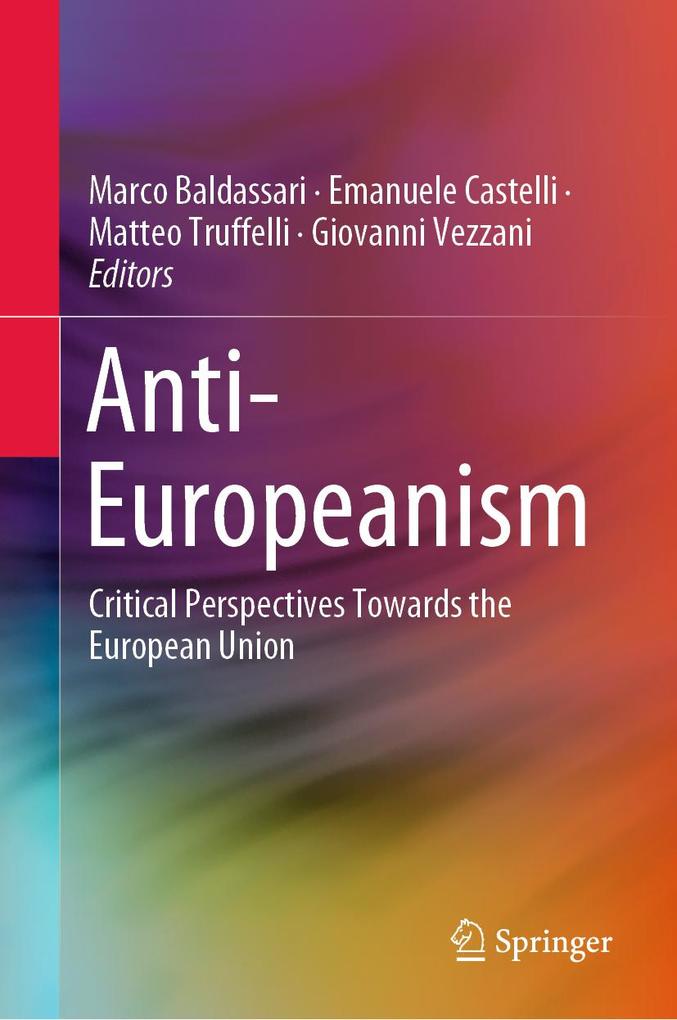
Sofort lieferbar (Download)
The book analyzes different critical attitudes towards European integration from a multidisciplinary perspective. By applying both quantitative and normative-theoretical approaches, the contributors assess the causes and effects of the popularity of EU-critical positions and doctrines, such as souverainism, neo-nationalism and neo-populism. The book also presents country studies to compare populist movements and parties, such as the Five Stars Movement in Italy, Syriza in Greece and UKIP in the UK. It offers insights into the historical and normative roots of the diverse anti-European standpoints, and the various political demands and agendas connected with these views, ranging from rejections of EU institutions to demands for institutional reforms and propositions for alternative projects.
Inhaltsverzeichnis
Democratic Deficit and its Counter-Movements: The Eurocentric-Eurosceptic divide in Times of Functional Legitimacy.- Euroscepticism in Times of Crisis. A Macro-level Analysis of the Euro Crisis Effects on Public Opinion and Party Competition on European Integration.- Redefining Democracy and Political Assertiveness: A Constructivist Exposition of European Populism.- The Resilient Governance of the EU: Towards a Post-Democratic Society.- Euroscepticism in Times of European Crisis: The Role of Solidarity.- The European Integration and the Economic Crisis: The Changing Positions of Social Democratic and Radical Left Parties in Spain and Italy.- Simplicity versus Complexity in the European Debate: Identity, Responsibility, and the Dialogue Questioned.- From the Clash of Cultures to the Culture of Clash: Normative Political Theory and the Question of Muslims' Citizenship in Europe and the U.S..- Do Populists Talk the Same? A Multilevel Analysis of Northern League and Five Star Movements' Positions on Immigration and the European Union.- Paths of Critical Europeanism.- Conclusions. Opposition in Europe, Past and Future.
Produktdetails
Erscheinungsdatum
23. Oktober 2019
Sprache
englisch
Auflage
1st ed. 2020
Seitenanzahl
200
Dateigröße
3,72 MB
Herausgegeben von
Marco Baldassari, Matteo Truffelli, Giovanni Vezzani, Emanuele Castelli
Verlag/Hersteller
Kopierschutz
mit Wasserzeichen versehen
Produktart
EBOOK
Dateiformat
PDF
ISBN
9783030244286
Entdecken Sie mehr
Bewertungen
0 Bewertungen
Es wurden noch keine Bewertungen abgegeben. Schreiben Sie die erste Bewertung zu "Anti-Europeanism" und helfen Sie damit anderen bei der Kaufentscheidung.










